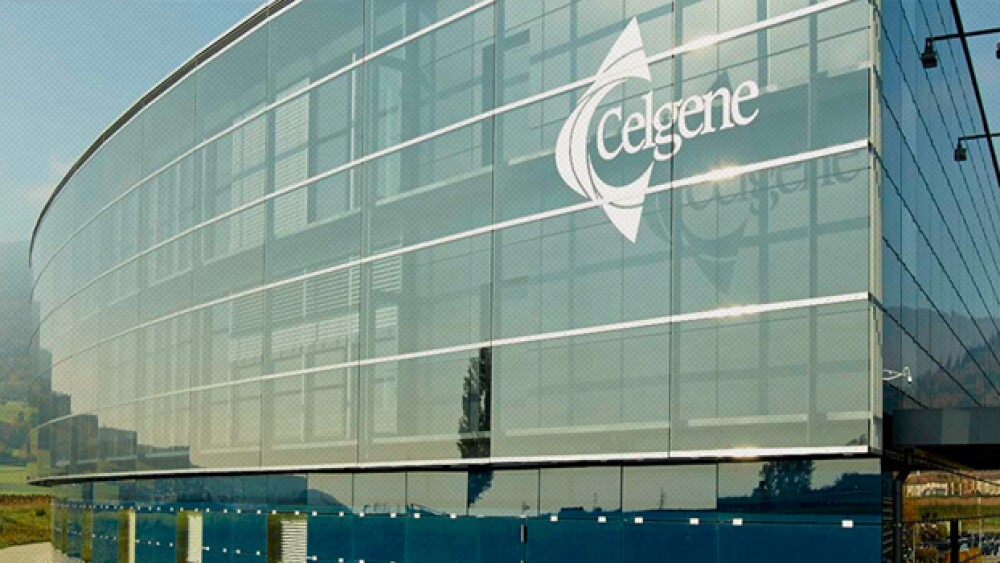Celgene has been unloading some of its shares in two of its investments, CRISPR Therapeutics and Atara Biotherapeutics.
Celgene not only has a striking number of successful drugs in its portfolio and pipeline, but it owns more than $1.5 billion in shares, according to S&P Capital IQ, in a dozen or more small biotech companies.
The company has a reputation, in that regard, of holding onto its shares, but Barron’s recently noted that the company was unloading some of its shares in two of its investments, CRISPR Therapeutics and Atara Biotherapeutics.
Headquartered in Zug, Switzerland, CRISPR Therapeutics focuses on developing therapies using CRISPR/Cas9 gene editing technology. On Dec. 12, CRISPR inked a deal with Cambridge, Mass.-based Vertex Pharmaceuticals to co-develop and co-commercialize CTX001, a gene therapy being developed for beta-thalassemia and sickle cell disease. The companies plan to launch a Phase I/II trial of the therapy for beta-thalassemia in Europe in 2018 and a Phase I/II trial in sickle cell disease in the U.S. next year as well.
“The submission of a Clinical Trial Application for CTX001 in Europe, supported by the robust data presented at the recent ASH Annual Meeting, reflect the advances we have achieved in translating the potential for CRISPR/Cas9 science into transformative therapies,” said Samarth Kulkarni, CRISPR Therapeutics’ chief executive officer, in a statement. “We now look forward to working closely with Vertex as we initiate clinical trials next year.”
Which sounds good. So why did Celgene cut its stake from 4.8 million shares on Sept. 30 to 3.3 million shares as of Dec. 22? Barron’s suggests, “Maybe it wanted to lock in gains. In May 2015, Celgene had bought pre-IPO preferred shares that converted to 4 million common shares for about $6.27 a share, using today’s exchange rate for Swiss francs to dollars.”
Shares of CRISPR Therapeutics are trading at $21.23.
Based in South San Francisco, Atara is working to develop off-the-shelf immuno-oncology therapeutics. This is a one-size-fits-all approach to the current crop of immuno-oncology therapies that are individually engineered for each patient. On Dec. 11, the company announced positive interim results for tabalecleucel from its ongoing trials of patients with EBV associated cancers. The findings were reported at the American Society of Hematology (ASH) annual meeting. In six patients with rituximab-refractory EBV+PTLD after solid organ transplant, five out of six had an 83 percent objective response rate with the therapy. The estimated one-year overall survival for the 12 patients receiving the therapy was 90.9 percent.
“We are gratified to see that the multicenter clinical findings in patients with EBV+PTLD are consistent with the tabelecleucel profile observed in the Phase II studies conducted at Memorial Sloan Kettering Cancer Center,” said Chris Haqq, Atara’s executive vice president of Research and Development and chief scientific officer, in a statement. “We look forward to initiating Phase III clinical studies with tabelecleucel by the end of this year, which are expected to enroll the same EBV+PTLD patient populations as presented at ASH.”
So, again, why unload the stock? Barron’s writes, “Celgene only sold about 100,000 shares but due to more shares outstanding, its percentage stake slipped to 3.8 percent, or 1.15 million Atara shares, down from 6.2 percent, or 1.26 million shares, at the end of 2014…Celgene had also invested in Atara before its October 2014 IPO, buying preferred shares that converted into 1.26 million shares for $10 million, or $7.96 each. Atara’s IPO was priced at $11 per share and ended 2014 with a 134 percent gain. Shares eked a 3 percent gain in 2015 before tumbling 46 percent in 2016. For the year-to-date, they have gained nearly 7 percent.”
Barron’s also notes that now that Celgene’s ownership stake has dropped below 5 percent, it isn’t required to disclose trades, so it’s always possible it will sell off the rest … or not. Meanwhile, Morgan Stanley had been buying Atara shares.





